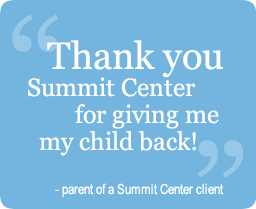Lights flickering. Pitch black room. A moment of silence. A flood of thoughts go through my brain like lightning as the hustle and bustle of the evening activities is interrupted. ‘How long will this blackout last?’ ‘Was there something important I was supposed to do tonight?’
If you have ever experienced an energy blackout, you might have encountered an abrupt change of pace in a house lit up with flashlights and candles. For some people, it might be more than, “oh well, now that my phone battery is dead, I guess I’ll have to go to bed early.” It could mean a loss of opportunity or negative consequences the next day.
In 2006, my husband and I were volunteering in a small fishing village in Southern India. Experiencing multiple blackouts in the middle of evening was not a big deal to the local people. To be honest, eating dinner in the dark in a hungry and exhausted state was my least favorite part of the day. As a natural planner, not knowing how my evening was going to pan out was the toughest part of my trip. However, this one summer vacation has forever changed my brain on how I prioritize my evenings. Here are some authentic examples of how these principles have translated into my daily activities:
• Eating salad with protein and fulfilling the day’s veggie serving instead of feeling guilty all day
• Taking a bath earlier in the evening and making sure that I unwind and not skip it
• Starting with the last chapter of the book when I’m not sure if I’ll have enough time to read through the whole book
Sticking with these principles helps me live each day to the fullest, leaving no regrets behind. Of course, some friends and family think that I am weird. But these are my own unique ways of living out the 3 Ps: Planning, Proactive, and Prioritizing.
A lot of students appear to have a different mentality: ‘I’m going to relax a while and start my homework later.’ or ‘I’ll ease into easy assignments and tackle my long term project later.’ I call this the “Marathon Mindset” — let’s ease into running and finish strong. However, in reality, this way of thinking often results in:
• Starting homework at 10pm
• Not having enough time to study for upcoming quizzes and tests
• Rushing through the project at the last minute
Some of the variables that play a role in these stressful outcomes are the inability to stop in a timely manner when using screen time as relaxation, poor time estimation, or brain fatigue.
I have a high school client who is working on the 3 P’s by following this rubric that we have created together:
• 1 point for bringing a hard copy of the study guide sheet to the session
• 1 point for knowing the topic/chapter for upcoming quizzes and tests
• 1 point for reaching out to teachers such as going over the old tests during office hours, taking up on the make-up test opportunities to get extra credit, or asking clarifying questions in class
• 1 point for showing evidence that she studied on her own for as little as 15 minutes
I call this the “Exit Plan” because when she obtains 3 out of 4 bullet points or more four times in a row, she is one step closer to independence. Sometimes adolescents have a difficult time understanding what it looks like when they are proactive and when their lives are better organized as these skills may feel intangible and abstract. Once they understand the benefits and start planning ahead, all aspects of their lives can benefit.
What are some areas in your life that you want to be more proactive so that you can plan and prioritize more?
Deanna Kim is an Educational Therapist specializing in academic coaching and math interventions at Summit Center, Walnut Creek and at The Athenian School, Danville. Deanna’s passion is to empower adolescents to grow in executive functioning skills through collaborating with parents, for which she coined the term T.O.P.S.™ skills (Time Management, Organization, Planning, and Self-Understanding). Prior to joining Summit Center, she worked as a classroom teacher and learning specialist. A mother of twin boys, Deanna is a lifelong learner at her core, as she continues to set goals and build sustainable habits.


